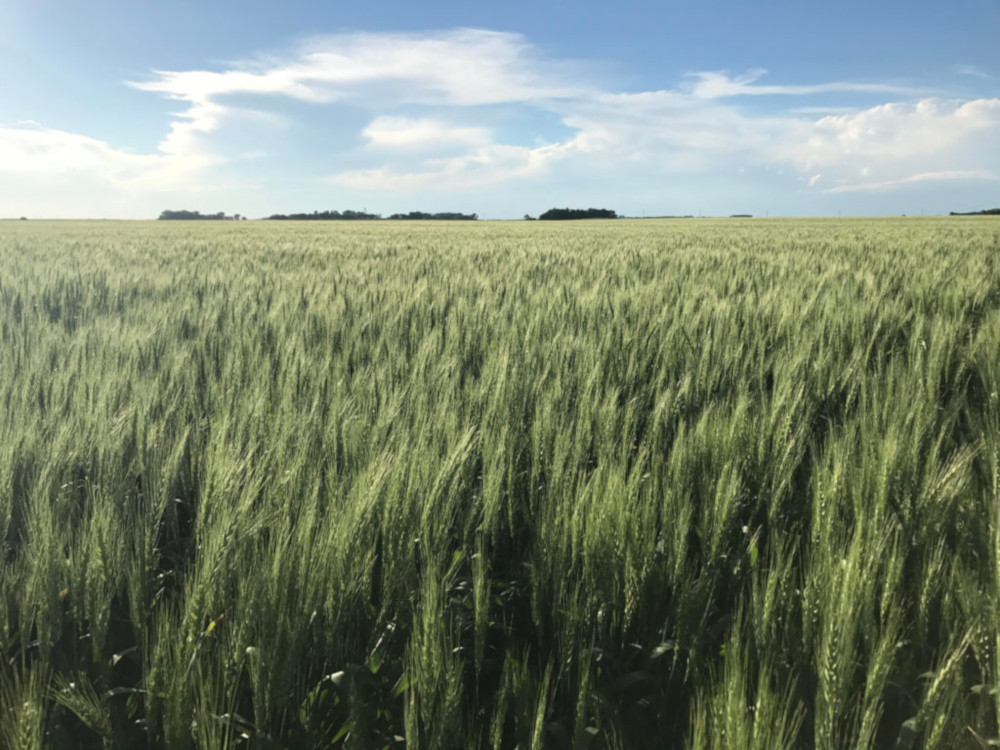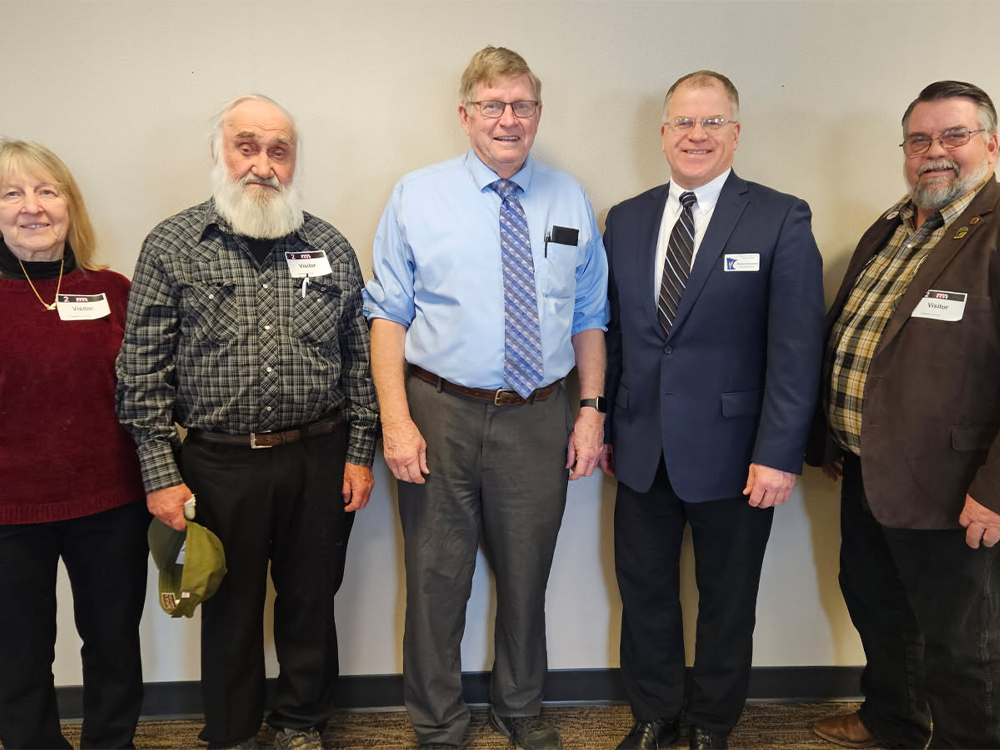Minnesota farmers know how to grow quality wheat.
And by wisely investing Minnesota wheat checkoff dollars, the Minnesota Wheat Research & Promotion Council (MWRPC) is taking strides to expand and maintain international markets for that wheat. In March, MWRPC Vice Chair Mark Jossund embarked on a trade mission with U.S. Wheat Associates (USW) – which oversees the national wheat checkoff – to Vietnam and China, nurturing years-old relationships with the two countries.
“Fifty percent of all the wheat grown in the United States, including Minnesota, has to be exported,” said Jossund, who represents Minnesota on USW’s board of directors. “So, we need these relationships, and we need to make sure that our wheat gets exported because we don’t consume it all here in the United States.”
Before heading overseas, the USW delegation stopped at the USW office in Portland, Ore., attended a Federal Grain Inspection Service briefing on grain grading and toured the United Grain export elevator in Vancouver, Wash. After getting caught up to speed on the wheat market outlook in Vietnam and China, they made their way to Hanoi.
“Vietnam is a market with a lot of growth potential,” Jossund said. “Their diets are changing, and people want higher quality breads and crackers. Anything can be made into flour to make bread but to make quality bread products, you need high-quality wheat. So, they buy from the U.S. even though we’re expensive.”
While in Vietnam, the group visited Vimaflour, which is the largest mill in the country and the first to be opened in northern Vietnam, as well as Vietnam Flour Mill. During these visits, Roy Chung, a USW baking consultant, joined the group to provide his technical expertise but overall, the topic of conversation centered around the benefits of wheat grown in the U.S.
“They’re no different than the farming community – they’re struggling to make ends meet,” Jossund said. “They’re having to be cost-sensitive on their buying. They like our wheat, they’d just like it to be cheaper. What USW is trying to do is show them the value of high-quality wheat.”
They also explored Bahn Mi, a small, family-owned bakery. Throughout Hanoi, where the delegation spent their time in Vietnam, local bakeries can be found around every corner.
“The owner was so proud to show us his bakery,” Jossund said. “He’s using about 100 kilograms of flour a day and they bake all day long because the products don’t have a huge shelf life. He was proud of the fact that the flour was coming from the United States. It was one of my favorite stops in Hanoi.”
U.S. farmers grow roughly 50 million acres of wheat. As one of the biggest export markets for U.S. wheat, China is a vital partnership for USW. While there, the delegation met with Hauren Trading Company, continuing the conversation about the benefits of U.S. wheat and the U.S. supply chain.
“Our customers see the value in our high-quality wheat and during these trade missions, they get to meet the grower and put a face with the product,” Jossund said. “They really value relationships. At the end of the day, it’s still about dollars and cents but as they realize the value of high quality they will eventually buy more.”
The USW group members – including USW Secretary/Treasurer Jim Pellman from North Dakota, USW Director Jennifer Schmidt of Maryland and USW West Coast Office Assistant Director Luke Muller – were special guests at the Sino-American Baking School in Guangzhou for its 40th anniversary celebration.
“USW has worked with Sino-American Baking School for each of its 40 years,” Jossund said. “They work with their students to see the value of high-quality flour, which comes from high quality wheat. It was a really neat event to be a part of.”
In 2023, Minnesota wheat growers produced roughly 78 million bushels of spring wheat, which is used in hearth breads, rolls, croissants, bagels and pizza dough. For each bushel sold, U.S. wheat farmers contribute about one-third of a penny per bushel ($.0034) into the checkoff. USW then works alongside state wheat boards like MWRPC to invest checkoff resources toward expanding international markets for U.S. wheat producers. By partnering with USW, MWRPC joins forces with a national organization that is dedicated to export market development.
“Being a member of USW leverages our producer dollars into an organization that has offices around the world to promote wheat,” Jossund said. “With USW, we have people that are on the ground in various parts of the world promoting our product.”
Upon his return home, Jossund reflected on the impact off investing Minnesota wheat checkoff dollars toward trade missions.
“Your checkoff dollar isn’t disappearing into thin air,” Jossund said. “Farmer dollars are leveraged many times over to promote wheat worldwide.”





